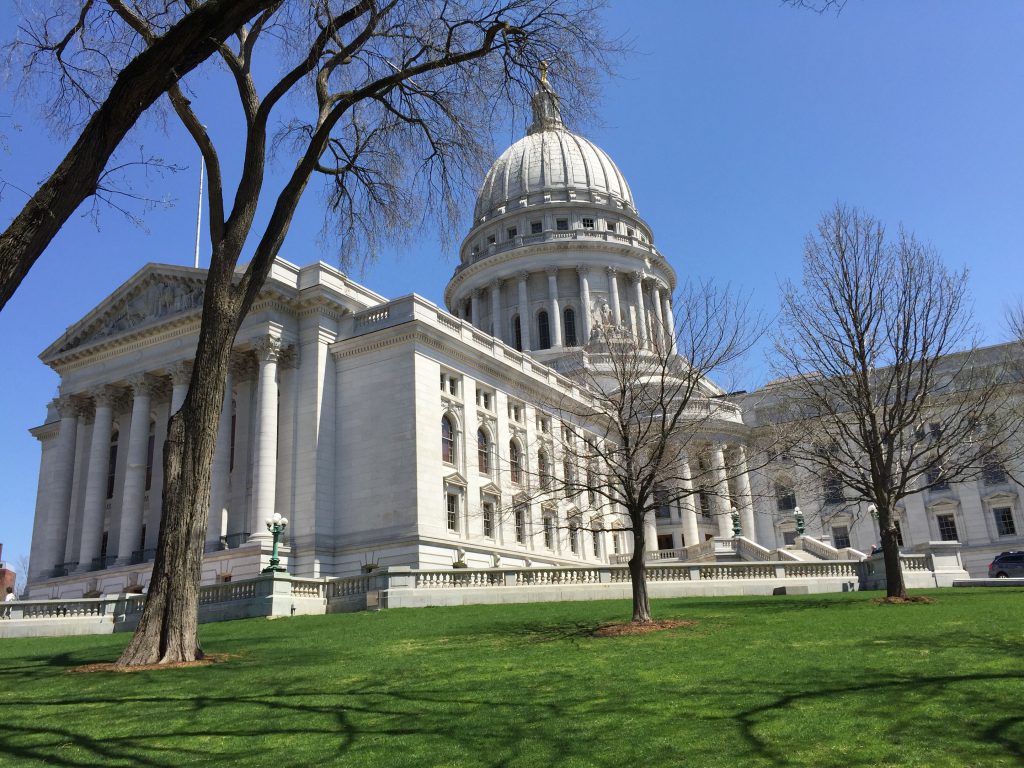$1 Million Legislative Races Now Common
For a job paying $52,000. This year the Democrats are out-spending Republicans.
The incumbent Assembly member from suburban Milwaukee shook his head in dismay. Yes, he admitted, his campaign may have to spend a stunning $200,000 on his re-election bid. That’s a $200,000 IOU he’d be responsible for someday, and not money from any Republican Party group. He raised less than half of that amount to be re-elected two years ago.
Yet his race was one of eight Assembly races in which all sides — candidates, the campaign committees of their parties and third-party groups — had spent close to $800,000 or more as of Oct. 19, according to the Wisconsin Democracy Campaign (WDC), which tracks campaign spending.
But the Assembly incumbent should be thankful he’s not running in one of the five state Senate races that will determine which party controls that house for the 2021-22 legislative session. WDC totals last week showed spending by all sides in two of those Senate races through Oct. 19 was $2.45 million and $2.35 million.
Neither will probably break the record for spending on a seat in the Legislature: $4.5 million in the 2018 election won by Republican Sen. Howard Marklein, of Spring Green. Still, the overall trend is ever more spending.
“The ‘big money’ race shows no signs of abating here in Wisconsin,” said WDC Executive Director Matt Rothschild. “It’s taking obscene amounts of money now to win a contested race for the Assembly and Senate.”
“There’s no end in sight,” he lamented. “Candidates are becoming increasingly beholden to big donors and to outside groups – not to their constituents. This does not bode well for democracy.”
According to WDC records, the five costliest races as of Oct. 19 were:
-$2.45 million spent in the La Crosse-area’s 32nd Senate District. Independent third-party groups spent $762,596; Democrat Brad Pfaff and Democratic Party groups, $1.3 million, and Republican Dan Kapanke and Republican Party groups, $354,149.
-$1.66 million spent in the 10th Senate District, which includes many commuters to Twin Cities jobs. Independent third-party groups spent $671,464; Democratic Sen. Patty Schachtner and Democratic Party groups, $532,755, and Republican Rep. Rob Stafsholt and GOP groups, $465,543.
-$1.52 million spent in the 8th Senate District, which includes parts of four Milwaukee-area counties. Independent groups spent $518,304; Democrat Neal Plotkin and Democratic Party groups, $543,153, and Republican Sen. Alberta Darling and Republican Party groups, $468,072.
-$1.38 million spent in the 14th Assembly District that includes parts of Milwaukee and Waukesha counties. Independent groups spent $295,879; Democratic Rep. Robyn Vining and Democratic Party groups, $858,132, and Republican Bonnie Lee and Republican Party groups, $226,461.
“Democrats are beating Republicans at their own game,” Rothschild said. “Independent expenditure groups that spend on behalf of Democrats have outspent their counterparts by 64% to 36%. And the Democratic Party of Wisconsin (DPW) has out-raised the Republican Party of Wisconsin (RPW) 71% to 29 percent.”
“Trump is the chief fundraiser for groups supporting Democrats. since antipathy to him runs so high among wealthy liberal donors.” His candidacy, Rothschild added, may mean “cement shoes” for “down ballot” Republicans.
Adding another problem for the State Republican Party: it lost $2.3 million to computer hackers.
Heck said Republicans are using changes in campaign-finance laws they passed that allow candidates and third-party groups to work together.
“The enhanced fundraising prowess of the DPW has made the Democratic spending possible and the Republican candidates, with less support from the RPW, are relying heavily on coordinated support from outside special-interest groups,” Heck said.
That makes Wisconsin pretty unique, Heck noted: “Wisconsin is only one of two states in the country — Florida is the other — where this issue advocacy coordination is legal. It is not even legal at the federal level.“
Steven Walters is a senior producer for the nonprofit public affairs channel WisconsinEye. Contact him at stevenscotwalters@gmail.com
If you think stories like this are important, become a member of Urban Milwaukee and help support real, independent journalism. Plus you get some cool added benefits.
The State of Politics
-
A Wisconsin Political Trivia Quiz
 Dec 15th, 2025 by Steven Walters
Dec 15th, 2025 by Steven Walters
-
The Fight Over Wisconsin’s House Districts
 Dec 8th, 2025 by Steven Walters
Dec 8th, 2025 by Steven Walters
-
The Battle Over On-Line Betting
 Nov 24th, 2025 by Steven Walters
Nov 24th, 2025 by Steven Walters






















